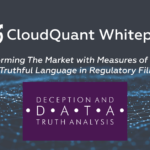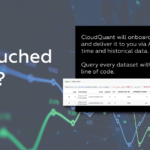How do you get from being a Data Scientist, Software Engineer, or Markets Enthusiast to being a Quantitative Algo Developer? Algorithmic Trading requires both technical, and functional skills.
Overview of Core Technical Skills
Programming
Programming is the ability to express your trading ideas so that a computer can repeat the process. You need this skill to be able to code your algo. Structured backtesting is another use of your programming skills.
CloudQuant uses Python, a high-level language that is easy for anyone to learn who has ever worked with any programming or macro language, like MS Excel VBA.
Simulation (BackTesting)
To test your algo you will need to test it against historical data. This is called “Backtesting.” Backtesting is more than checking to see if you made a profit or loss. It includes understanding how and why you made a profit and loss and systematically improving that algo.
Statistics
CloudQuant’s backtesting provides several reports that are full of statistics. Understanding what each of these statistics means is essential to improving your algo. Having a base understanding of statistics is also important.
Management of Risk
Order processing and trading involves risk. CloudQuant meets our regulatory required risk and our own functional requirements for pre-trade and post-trade risk management within our production trading system and our backtesting simulation tools. Understanding how risk works will help you improve your algorithm skills.
Learn more
Read the Full Post and See the training available at Experfy.com



